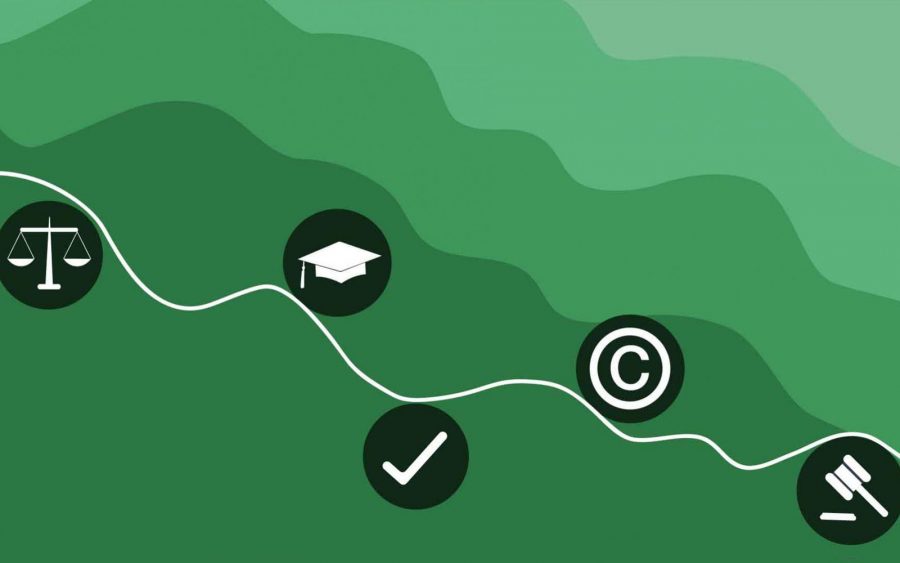You have an idea, a priceless invention! You have done the needful by applying and receiving a copyright, patent or trademark to protect that invention. Does it end at that? How then do you make money off it? One way to make money off your invention is to license your intellectual property (IP) rights to a third-party for production or use.
A licensing agreement is a legal contract between two parties, known as the licensor and the licensee. In a typical licensing agreement, the licensor grants the licensee the right to produce and sell goods, apply a brand name or trademark, or use patented technology owned by the licensor. In exchange, the licensee usually submits to a series of conditions regarding the use of the licensor’s property and agrees to make payments known as royalties.
IP can be “licensed-out” or “licensed-in”. You can “license-out” to another company in return for a fee. You can “license-in” if you want to use another company’s IP to develop your own business and products.
Licensing agreements can be:
- Exclusive license: A licensee who gets this license is the only one who can use the intellectual property. Even the licensor cedes rights to the license during the length of the agreement. This type of license costs the licensee much more.
- Non-exclusive license: A licensee has the rights to use the intellectual property. The licensor also has the option to sell it to others, though. Non-exclusive licenses have the greatest number of licensees. That’s because many licensees have the right to use the same intellectual property.
- Sole license: The licensee has the sole right to the licensing of the intellectual property. The licensor also keeps the right to use it. This is similar to an exclusive license. It’s more favorable to the licensor, though. This type of license usually costs more than a non-exclusive one but is cheaper than an exclusive license.
This license could define how your invention earns you money for years to come, so it is important to have a lawyer look over the contract before you sign. Primarily, you should consider focusing on these five issues: Royalties, exclusivity of the contract, term and termination, confidentiality, and dispute resolution.
Royalties
A key mistake made in negotiations is neglecting terms that detail how the royalty payments will be made. One important term to consider is how do you want the payments? Lump sum? Per unit? Per unit progressive or flat? Defining the royalty can help you, as the licensee, to earn the profits you deserve. It could be used to get the money up-front to fund your next great idea or to ensure that a minimum amount of money goes in your pocket each month. If the license is exclusive, minimum guarantees are a good way to put a floor on your earnings.
Exclusivity of the contract
This refers to the type of contract agreed, with the 3 main options shown above: exclusive, sole or non-exclusive. Usually, a company will ask for exclusive rights. In this scenario, it is often more likely to negotiate a higher royalty payment.
Term and termination
How long will the contract last and what will happen when it is up? For instance, you may want a clause allowing you to terminate if sales fall below a certain amount of units, allowing you to seek a better deal. Or if you have worked in a minimum royalty for the year, you want to be sure the licensor cannot avoid that minimum payment by terminating the contract the day before it kicks in.
Confidentiality
Most companies use some sort of non-disclosure agreement (NDA) these days. When they don’t, the licensing agreement needs this clause. The confidentiality section must say which parts of the license are secret. This clause is also a good place to strengthen an NDA if it’s weak.
Dispute resolution
Finally, disagreements do happen from time to time. In the event that you and the other party cannot work them out, it is important to have a well-defined dispute resolution process. Arbitration can be a useful tool to avoid the cost of discovery and trial and is helpful in settling limited, well-defined issues. However, arbitration can come with its own drawbacks and expenses. Be sure to fully understand all the pros and cons before agreeing to a particular form of dispute resolution.
Benefits of a licensing agreement
- You don’t need to find money to commercialize your product: The licensee will be responsible for costs of manufacturing, distribution, packaging, marketing and sales, etc.
- You can get your innovation to market faster: If you issue a license to an established business, you will be able to leverage their experience, infrastructure and involvement. They will typically be more able to move your product into the marketplace easier and quicker.
- You can break into new markets: Depending on the deal and the licensee, you may be able to access markets that are closed to imports, avoid export taxes or mitigate risks associated with international expansion.
- You will be able to generate revenue: The licensee will pay for the right to hold the license to your patent. This can be a one-off payment, continuous payments known as royalties, or variable payments depending on the profits.
You keep ownership of your intellectual property: Licensing allows you to give suppliers, competitors or complementary businesses certain rights over your patent, while receiving royalty income and still retaining ownership of your asset.



















